So, did you go through NEP 2020 highlights, and what about NEP 2020 practice set? Did you attempt that? Do you feel that you have gained enough knowledge in NEP 2020?
If yes, then how about attempting these NEP 2020 questions that were asked in the previous year’s question papers? To empower you with the real scenario, we have accumulated some of the finest questions from different exams that let you judge your knowledge and prepare you for an exam.

Embarking on a journey towards success begins with a clear vision and concrete goals.
Anthony Robbins
NEP 2020 questions are useful for those, who want to prepare for their exams and enhance their knowledge. We have already provided NEP 2020 MCQs as a practice set in our previous article. One can navigate to assess their preparation for National Education Policy 2020.
Apart from these questions bank and practice set, it is highly recommended to cover NEP 2020 highlights where all the relevant notes are provided in sequence that can be considered as a reference material for the new National Education Policy.
It is highly recommended to practice such questions as it gives insight into questions being asked in future exams. Each question is marked with the exam’s name followed by its answer. This helps us to judge the question pattern and its level of difficulty.
NEP 2020 Question (PYQ)
Previous year questions (NEP 2020) asked in Government exams : »
(1) As a senior academician and admission counselor of a school which of the following subject combinations you will suggest to students of an ARTs scheme as per NEP 2020?
(DSSSB PGT Pol. Sc. 2021) NEP 2020 Question
- English, History, Geography, Political Science, Computer Science.
- English, History, Geography, Political Science, Physical Education.
- English, History, Geography, Political Science, Biology.
- Guide him to take his or her desired subject combination.
Answer :
(iv) Guide him to take his or her desired subject combination.
(2) The vision of NEP 2020 is?
(DSSSB PGT 2021) NEP 2020 Question
- To transform India into a vibrant knowledge society.
- Skill India.
- Free and compulsory education to the age of 14.
- To make every citizen a human capital
Answer :
(i) To transform India into a vibrant knowledge society.
(3) Suppose you are the academic head of your institution and you generally manage the subject combinations of the senior secondary students as per NEP 2020, which of the following subject combination a student can avail in senior secondary?
(DSSSB PGT Sanskrit 2021) NEP 2020 Question
- One must opt for all the Science subjects.
- One must opt for all the Commerce subjects.
- One may have the freedom to opt for any subject combination.
- One must opt for all the Art subjects.
Answer :
(iii) One may have the freedom to opt for any subject combination.
(4) According to NEP 2020, the medium of instruction up to class V in schools should be
(BPSC 2022) NEP 2020 Question
- Any foreign language.
- Mother tongue and regional language.
- English.
- National language.
Answer :
(ii) Mother tongue and regional language.
(5) NEP 2020 is incorrect?
(NVS Dec-2022) NEP 2020 Question
- Gross Enrollment Ratio in higher education to be raised to 30% by 2035.
- An Academic Bank of Credit is to be established to facilitate the transfer of credit.
- National Research Foundation will be created as an Apex body to foster research.
- NEP 2020 emphasize setting up a gender inclusion fund.
Answer :
(i) Gross Enrollment Ratio in higher education to be raised to 30% by 2035.
(6) According to NEP 2020 the primary activities of the NRF will be to
(NTA UGC-NET/JRF/SET 2022) NEP 2020 Question
- Fund competitive peer reviewed grant proposals of all types across all disciplines.
- Open new institutions of research and innovation.
- Act as a liaison between researchers and relevant branches of Government as well as Industries.
- Include research in the curriculum at the school level.
- (A) and (B) only
- (A) and (C) only
- (B) and (C) only
- (C) and (D) only
Answer :
(2) (A) and (C) only
(7) NSQF organizes qualification according to a series of levels of
(NTA UGC-NET/JRF/SET 2022) NEP 2020 Question
- Knowledge, Skills, Experience
- Skills, Experience, Aptitude
- Knowledge, Skills, Aptitude
- Skills, Achievement, Experience
Answer :
(3) Knowledge, Skills, Aptitude
(8) As per NEP 2020 the responsibility to develop an adult educator framework has been given to which of the following organizations?
(NTA UGC-NET/JRF/SET 2022) NEP 2020 Question
- MHRD
- NCTE
- NIEPA
- NCERT
Answer :
(4) NCERT
(9) The presence of which of the following points poses a challenge for the higher education system as per NEP 2020?
(NTA UGC-NET/JRF/SET 2022) NEP 2020 Question
- Large affiliating universities
- Ineffective regulatory system
- Limited teacher and institutional autonomy
- Emphasize on research
- Efficient merit-based carrier management and progression of faculty members
- (A), (B) and (C) only
- (B), (C) and (D) only
- (B), (D) and (E) only
- (A), (B) and (E) only
Answer :
(1) (A), (B) and (C) only
(10) Choice-based credit system of index graduate levels includes :
(NTA UGC-NET/JRF/SET 2022) NEP 2020 Question
- Core course
- Elective course
- Ability enhancement course
- Environment education course
- English communication course
- (A), (B) and (C) only
- (B), (C) and (D) only
- (C), (D) and (E) only
- (A), (B) and (E) only
Answer :
(1) (A), (B) and (C) only
(11) In CBCS, Ability Enhancement courses are of two kinds. They are :
(NTA UGC-NET/JRF/SET 2023) NEP 2020 Question
- Ability enhancement compulsory courses
- Skill enhancement compulsory courses
- Ability enhancement elective courses
- Skill enhancement elective courses
- Skill enhancement courses
- (A) and (B) only
- (A) and (C) only
- (A) and (D) only
- (A) and (E) only
Answer :
(4) (A) and (E) only
(12) The National Council for Teacher Education (NCTE) as a regulatory body, came into existence on
(NTA UGC-NET/JRF/SET 2023) NEP 2020 Question
- 17th August, 1992
- 17th August, 1994
- 17th August, 1995
- 17th August, 1996
Answer :
(iii) 17th August, 1995
(13) Which of the following is not a platform of MOOCs under NEP 2020
(NTA UGC-NET/JRF/SET 2023) NEP 2020 Question
- CourseEra
- Edx
- MIT
- SWAYAM
Answer :
(iii) MIT
(14) The strategy for the education and development of human resources for any Nation should be based on
(NTA UGC-NET/JRF/SET 2023) NEP 2020 Question
- The Character and traditions of its people
- The stage of the country’s development
- The wealth of its students and teachers
- The opportunities available for its development
Answer :
(b) The stage of the country’s development
(15) Information about basic science and mathematics should be given to girls up to class 10, under which it was given:
(UP TET 2021) NEP 2020 Question
- NEP 2020
- NCF 2005
- Kothari Commission
- NEP 1986
Answer :
(3) Kothari Commission
(16) What is the full form of PARAKH?
(MP SET 2021) NEP 2020 Question
- Performance assessment, review, and analysis of knowledge for holistic development
- Performance analysis, review, and assistance of knowledge for holistic development
- Performance assessment, review, and Accreditation of knowledge for holistic development
- Performance analysis, review, and accommodation of knowledge for holistic development
Answer :
(2) Performance assessment, review, and analysis of knowledge for holistic development
(17) What will be the student-teacher ratio for socio-economically disadvantaged students as per NEP 2020:
(MP STET 2021) NEP 2020 Question
- 45:1
- 30:1
- 25:1
- 10:1
Answer :
(3) 25:1
(18) The progress card of the students communicated to the parents would be
(RPSC 2022) NEP 2020 Question
- Based on norm-referenced testing
- Based on the criteria referenced testing
- A reflection of the relative performance of students in comparison to classmates
- A reflection of progress as well as the uniqueness of the students
Answer :
(4) A reflection of progress as well as the uniqueness of the students
(19) According to the draft of NEP 2020, what is the reason for the lowered credibility of the higher education system?
(NVS 2022) NEP 2020 Question
- Lack of academic infrastructure to impart quality education
- Lack of employable skills of a large proportion of the products of education
- Lack of good quality teachers to ensure successful outcomes for all students
- Lack of academic monitoring to ensure good quality of education in the classrooms
Answer :
(b) Lack of employable skills of a large proportion of the products of the education
(20) The purpose of the assessment as per the NEP 2020 is to provide information on
(DSSSB 2021-22) NEP 2020 Question
- How to support the students in and out of the classroom
- Comparison of the student’s performance with their classmates
- The gaps and deficiencies in student learning to accurately identify his/her failures
- Memorization capacities of the students
Answer :
(1) How to support the students in and out of the classroom
(21) Which is NOT the Vision of NEP 2020?
(NVS 2022) NEP 2020 Question
- Envisions an education system sustainably into an equitable and vibrant knowledge society by making India a global knowledge superpower
- The policy envisages that the curriculum and pedagogy of our institutions must develop among the parents a deep sense of respect toward the fundamental duties and Constitutional values
- The vision of the policy is to instill among the learners a deep-rooted pride in being Indian
- This policy envisages Indian ethos that contributes directly to transforming India, that is Bharat by providing high-quality education to all
Answer :
(2) The policy envisages that the curriculum and pedagogy of our institutions must develop among the parents a deep sense of respect toward the fundamental duties and Constitutional values
(22) Which is the full form of FLN under NEP 2020
(KVS PRT 2023) NEP 2020 Question
- Functional literacy and numeracy
- Foundational literacy and numeracy
- Foundational language and numeracy
- Functional language and numeracy
Answer :
(2) Foundational literacy and numeracy
(23) NEP 2020 targets 100% GER in Pre-school to Secondary level by?
(KVS PRT 2023) NEP 2020 Question
- 2030
- 2035
- 2025
- 2040
Answer :
(1) 2030
(24) The policy also tries to focus on certain foundational skills that children should have in the proposed new structure of?
(KVS PRT 2023) NEP 2020 Question
- 5+3+2+4
- 5+3+3+4
- 3+5+3+5
- 3+3+5+4
Answer :
(2) 5+3+3+4
(25) The curriculum would be divided into four stages as per the cognitive development of the students, What would be the correct sequence?
(KVS PRT 2023) NEP 2020 Question
- Foundational stage, Preparatory stage, Middle stage, Secondary stage
- Preparatory stage, Foundational stage, Middle stage, Secondary stage
- Foundational stage, Middle stage, Preparatory stage, Secondary stage
- Foundational stage, Preparatory stage, Middle stage, Higher stage
Answer :
(1) Foundational stage, Preparatory stage, Middle stage, Secondary stage
(26) According to NEP 2020 attainment of foundational learning and numeracy skills through national mission by
(KVS PRT 2023) NEP 2020 Question
- 2025
- 2023
- 2030
- 2040
Answer :
(1) 2025
(27) What is the age group covered in school education according to NEP 2020 new curricular structure
(KVS PRT 2023) NEP 2020 Question
- 2 – 14 years
- 3 – 18 years
- 6 – 18 years
- 6 – 14 years
Answer :
(2) 3 – 18 years
(28) Ministry of Education plan for attaining universal foundational literacy and numeracy in all primary schools for all learners by grade 3
(KVS PRT 2023) NEP 2020 Question
- 2022
- 2025
- 2027
- 2030
Answer :
(2) 2025
(29) The idea of Shikshak Mitra got inspiration from whom?
(KVS PRT 2023) NEP 2020 Question
- NEP 2020.
- NPE 1986.
- Acharya Ram Murthy Committee.
- Yashpal committee.
Answer :
(1) NEP 2020.
(30) PARAKH deals with
(KVS PRT 2023) NEP 2020 Question
- National aptitude test.
- National Assessment in Education.
- National curriculum framework.
- National survey on education.
Answer :
(2) National Assessment in Education.
(31) What PTR (Pupil-Teacher Ratio) Is prescribed in NEP 2020 in the schools located in Socio- Economically disadvantaged Area?
(KVS PRT 2023) NEP 2020 Question
- 25:1.
- 30:1.
- 35:1.
- 40:1.
Answer :
(1) 25:1.
(32) NEP 2020 focused on following main issue with reference to primary education
(KVS PRT 2023) NEP 2020 Question
- To establish primary schools in all rural areas.
- To achieve free elementary education by 2025.
- To Achieve functional literacy and numeracy by 2030.
- To achieve foundational literacy and numeracy by 2025.
Answer :
(4) To achieve foundational literacy and numeracy by 2025.
(33) From which standard vocational education would be introduced according to NEP 2020
(KVS TGT 2023) NEP 2020 Question
- Class 5
- Class 6
- Class 7
- Class 8
Answer :
(2) Class 6
(34) As per Nep 2020 what is the age of the preparatory stage in the ladder of Education
(KVS TGT 2023) NEP 2020 Question
- 9-14 years.
- 5-8 years.
- 8-11 years.
- 6-8 years.
Answer :
(3) 8-11 years.
(35) Which of the following is proposed in NEP 2020?
(KVS TGT 2023) NEP 2020 Question
- Receiving education in one’s native language can pose challenges to educational and technological progress.
- Educational institutions ought to promote English as the primary language for children to learn and communicate in.
- The ability to speak multiple languages offers significant cognitive advantages for young learners.
- The dual-language method can lead to confusion among students and impede their learning process.
Answer :
(3) The ability to speak multiple languages offers significant cognitive advantages for young learners.
(36) A National Assessment Center has been created to assess the students. What is its name?
(KVS TGT 2023) NEP 2020 Question
- PARAKH
- SARTHAK
- SIKHSHAN
- ADHYAN
Answer :
(1) PARAKH
(37) The newly proposed design of the school curriculum is
(KVS TGT 2023) NEP 2020 Question
- 4 + 3 + 4 + 4
- 5 + 3 + 3 + 4
- 10 + 2 + 2 + 1
- 5 + 2 + 3 + 5
Answer :
(2) 5 + 3 + 3 + 4
(38) What are the classes that cover at”secondary stage” according to NEP 2020 new curricular structure
(KVS PGT 2023) NEP 2020 Question
- Class 6 – 9
- Class 9 – 12
- Class 6 – 8
- Class 11 – 12
Answer :
(2) Class 9 – 12
(39) Which of the following statement regarding proposals made by National Education Policy is not correct?
(KVS PGT 2023) NEP 2020 Question
- NEP 2020 proposes that a variety of methods and strategies such as group work and role plays be used for assessment
- NEP 2020 proposes a shift from formative to summative assessment
- NEP 2020 proposes that apart from assessment by the teacher other ways such as self-assessment and peer assessment should be encouraged
- NEP 2020 proposes that the report card of the student should include progress in cognitive, affective, and psychomotor domains
Answer :
(2) NEP 2020 proposes a shift from formative to summative assessment
(40) NEP 2020 suggests that assessment
(KVS PGT 2023) NEP 2020 Question
- Must be undertaken through formal exams taken once in an academic year
- Must find out a child’s progress over a certain time
- Must be at the center of all educational activities
- Must be important to assign ranks to children to merit
Answer :
(3) Must be at the center of all educational activities
(41) What is the aim of DIKSHA (digital infrastructure for knowledge sharing) proposed in NEP 2020?
(KVS PGT Comp. Sc. 2023) NEP 2020 Question
- ICT Interface with Teaching.
- Digital platform for students.
- Technological intervention to achieve foundational literacy and numeracy in primary education.
- Digital platform for competitive examination.
Answer :
(1) ICT Interface with Teaching.
(42) The newly proposed design of School curriculum is
(KVS PGT ENG 2023) NEP 2020 Question
- 10+2+2+1.
- 5+3+3+4.
- 5+2+2+4.
- 4+3+3+4.
Answer :
(2) 5+3+3+4.
(43) Which age group of children has been put under foundational years in NEP 2020?
(KVS PGT LDCE 2023) NEP 2020 Question
- 3 – 8 years
- 5 – 8 years
- 3 – 10 years
- 5 – 12 years
Answer :
(1) 3 – 8 years
(44) The purpose of assessment according to National Education Policy 2020
(KVS PGT LDCE 2023) NEP 2020 Question
- To generate stress and induce fear amongst students to ensure learning levels
- To revise the teaching-learning process
- To optimize learning and development
- To support students inside and outside the classroom
- (i), (ii), and (iv)
- (i) and (iii) only
- (ii) and (iii) only
- (ii), (iii), and (iv)
Answer :
(4) (ii), (iii), and (iv)
(45) National Education Policy recommends the study of classical languages as
(KVS PGT 2023) NEP 2020 Question
- Additional options during the middle and secondary stages of schooling
- One of the options under the three-language formula
- As an additional option during the foundational stages of schooling
- As an additional option as an elective language during the secondary stages of schooling
Answer :
(1) Additional options during the middle and secondary stages of schooling
(46) Students’ and Teachers’ Holistic Advancement through Quality Education (SARTHAQ) is an ____________
(EMRS PGT 2024) NEP 2020 Question
- Indicative and Suggestive NEP Implementation Plan for School Education.
- Indicative and Suggestive NEP Implementation Plan for Technical Education.
- Indicative and Suggestive NEP Implementation Plan for Legal Education.
- Indicative and Suggestive NEP Implementation Plan for Higher Education.
Answer :
(1) Indicative and Suggestive NEP implementation for School Education.
(47) According to the NEP 2020, by which year the Gross Enrolment Ratio in higher Education including Vocational education is to be increased to 50%?
(EMRS PGT 2024) NEP 2020 Question
- 2035
- 2050
- 2030
- 2040
Answer :
(1) 2035
(48) Choose the correct statement regarding NEP 2020.
(EMRS PGT 2024)
- The foundational stage consists of five years of flexible, multi-level, and play/activity-based learning.
- The foundational stage is further divided into three parts: 1 year of pre-school, 2 years of pre-primary, and 2 years of primary school till grade 3.
- Both are correct.
- Both are incorrect.
- Only (A) is correct.
- Only (B) is correct.
Answer:
(1) Both are Correct.
(49) By reducing curriculum content in each subject the NEP 2020 wants to make space for:
(EMRS PGT 2024)
- Critical thinking-based learning.
- Inquiry-based learning.
- Discussion-based learning.
- Analysis-based learning.
- Only (A), (B), and (C).
- (A), (B), (C), and (D).
- Only (A) and (B).
- Only (C) and (D).
Answer:
(2) (A), (B), (C), and (D).
(50) NEP 2020 Aims to:
(EMRS PGT 2024)
- Attaining foundational literacy and numeracy for all children.
- Curtailing dropout rates at all levels of Education.
- Restructuring only school education but not higher education.
- Only (A) and (B) are Correct.
- Only (B) and (C) are Correct.
- Only (A) is correct.
- Only (B) is correct.
Answer:
(1) Only (A) and (B) are Correct.
If you want any topic to be discussed in this blog, please let us know through the comment section. We will try to provide an article on that subject as early as possible.
Please leave your valuable comment in the comment box! Your comments are valuable to us.



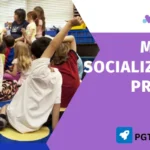

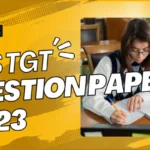
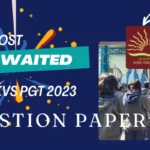
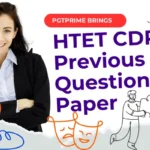
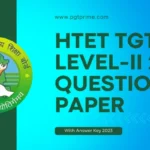

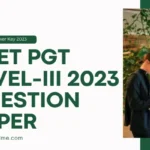

Nice effort
Very nice
Very useful and informative topic next time NCF I will learn
Many many thanks for this valuable content.
Please upload this type MCQ on Khel India & Fit India program.